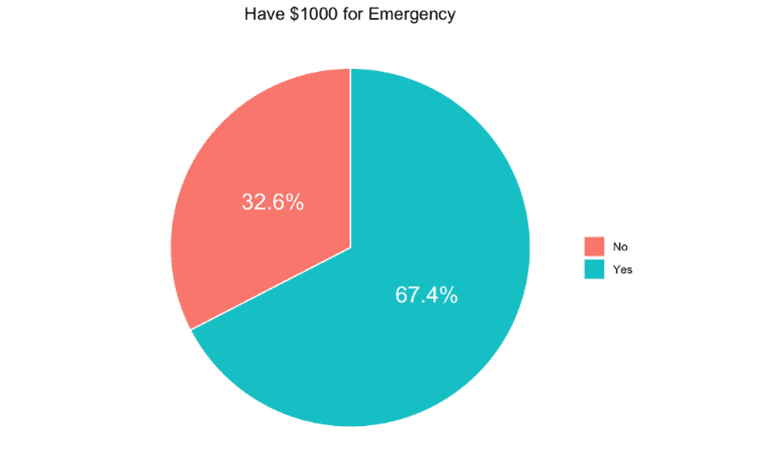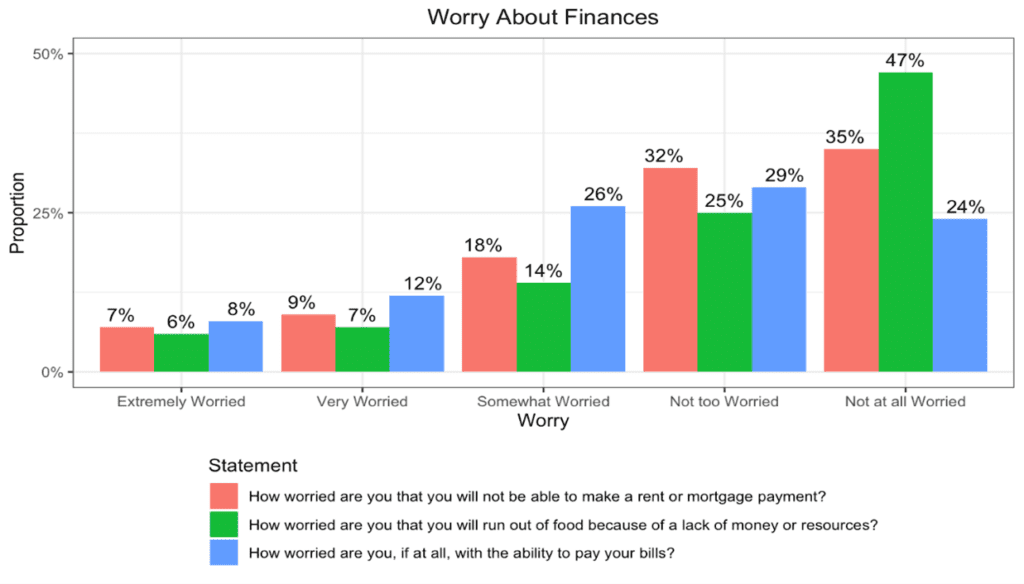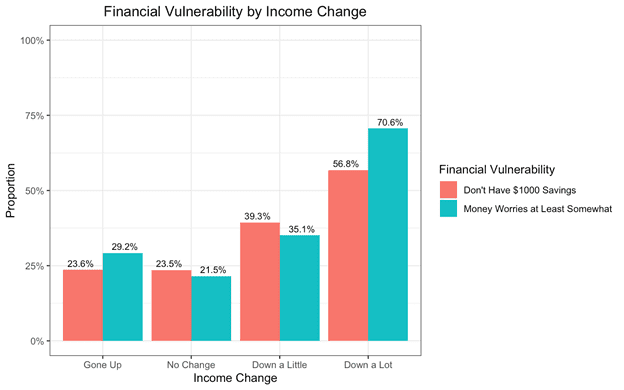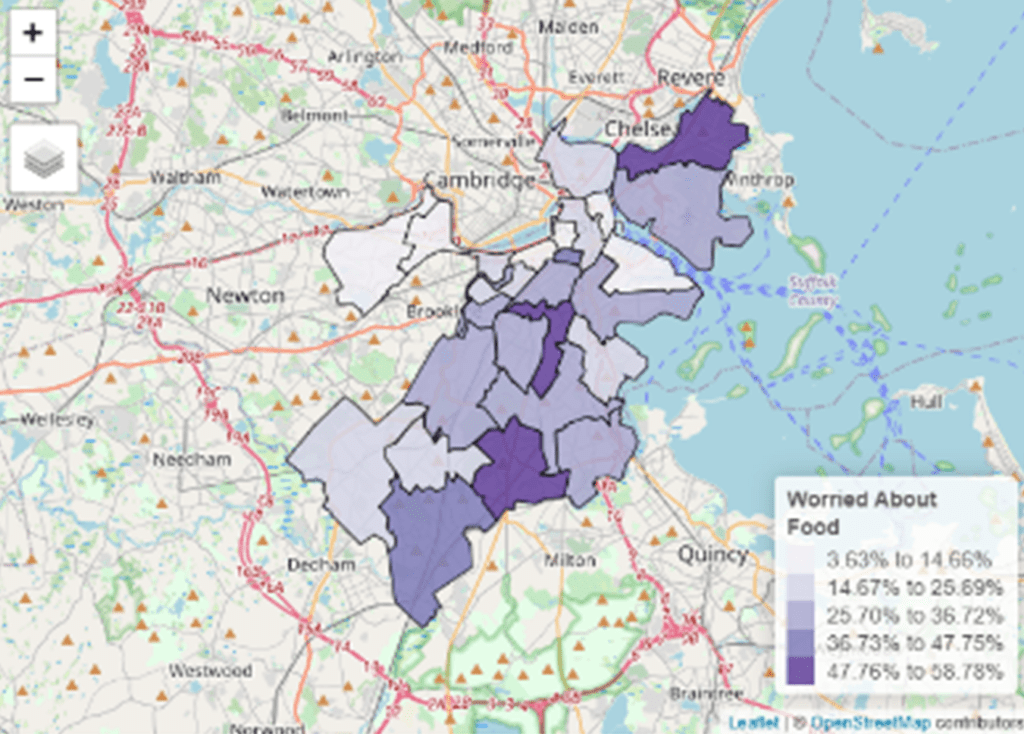In our third report drawn from the Living in Boston During COVID-19 survey, we have focused on the pandemic’s economic impact among Bostonians. We documented the substantial loss of jobs and income resulting from the pandemic. At the same time, we found striking disparities in these adverse economic effects between communities and in relation to race and ethnicity, education and income, and family status. The patterning of these effects indicates that the pandemic has multiplied rather than reduced preexisting inequities. In today’s data story, the last of three from this report, we show how the pandemic’s economic impact magnified economic vulnerability.
Many indicated they had minimal savings and worried about their ability to meet basic financial obligations. Almost one-third did not have enough savings for a $1000 emergency.

About one-quarter were at least somewhat worried about running out of money for food, one-third were worried about not having enough for a rent or mortgage payment, and almost half were worried about their ability to pay bills.

Those who lost income during the pandemic were more economically vulnerable than those whose income had not declined. Those who lost a lot of income during the pandemic were more than twice as likely to lack $1000 in savings and to report some money worries than those who reported no income loss.

The association between economic vulnerability and likelihood of income loss among individual survey respondents was also reflected in the pattern of variation between neighborhoods. Worry about running out of food due to insufficient funds was much more common in the communities of color where more residents had experienced income loss during the pandemic, like Hyde Park, Mattapan, Lower Roxbury, and East Boston/Orient Heights, as compared to more affluent, predominantly white, non-Hispanic communities where few had lost income during the pandemic, like Back Bay, Beacon Hill, and Seaport.
Food Insecurity by Neighborhood

The content of this post is drawn from the Living in Boston during COVID-19 survey conducted by the Center for Survey Research at UMass Boston and the Boston Area Research Initiative at Northeastern University, in collaboration with the Boston Public Health Commission. It was funded by the National Science Foundation’s Human-Environment and Geographical Sciences (HEGS) program through a grant y for rapid-response research (RAPID; Award #2032384). The results presented here were part of a longer report on “Economic Strains.”

